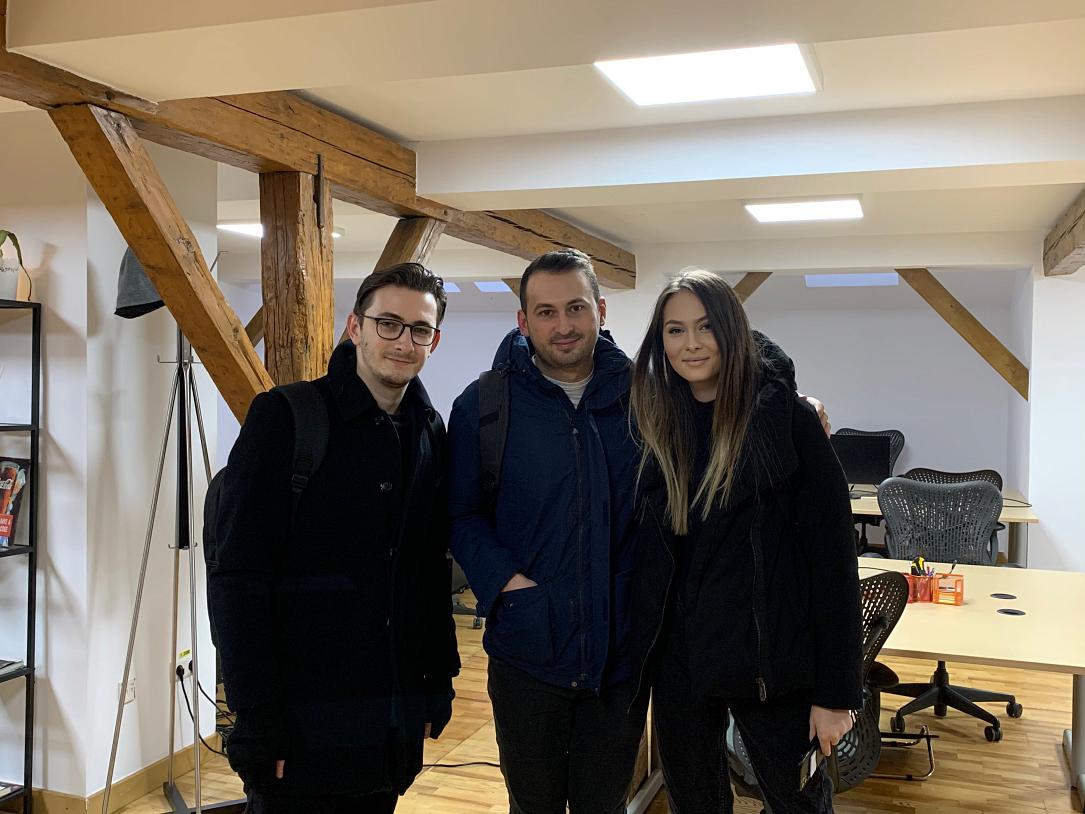PolyMore: A Romanian project works on detecting contaminated plastic waste to improve the sorting process



As plastic waste can come contaminated with other types of scraps. PolyMore has developed a solution that detects this to allow for better sorting.
"We started with the desire to find the optimum solution for managing plastic. After getting in touch with several people in the recycling industry and visiting several sorting centers, we identified as a big issue in the recycling industry the wrong sorting of waste after people use various products in their households," co-founder Iohana Măceșanu says.
The PolyMore team is made up of two engineers, Cristian Pogan and Vlad Mocanu, economist Iohana Măceșanu, and chemist Victor Baerle. "We met and started to work on the PolyMore solution at the business pre-accelerator Innovation Labs, the 2020 edition," she explains.
The solution is currently set up on waste collection trucks, after which the team will move on to the line sorting process. "At present, the PolyMore solution entails detecting the contamination degree of the recyclable waste. The elements that make up the hardware and software solutions are connected to a camera that takes shots from inside the garbage collection truck after the emptying of the bins. In this way, the system identifies the contamination source and alerts about the spot from where wrongly sorted waste is picked up. This solution can manage the deviation situations in the sorting process to allow for the more efficient processing of waste at recycling points. After the development and monetization of the detection system on the collection vehicles, we will move on to the part concerning the automation of the sorting line process," Măceșanu explains.
Last year, PolyMore was the grand winner of a EUR 5,000 prize at the 2020 edition of Future Makers, an entrepreneurship education program that includes a competition of business ideas. The sum allowed the team to fund its project.
"We successfully used the financial resources we won at the 2020 edition of Future Makers. The day-vision and night-vision camera, together with the software infrastructure for the cloud storage of the neuronal network we created and of the bin images were supported financially from this source. In addition, we had to combine the technical knowledge of electronics and software with the chemical interpretation of what we detect in the dumpsters."
PolyMore has started testing its solution with Timișoara waste collection company RETIM, and will continue with RER Group and COLTERM. The collection and sorting companies in Romania, both public and private ones, are among the potential clients, the co-founder explains.
Meanwhile, the team is continuously working on the accurate interpretation of waste. "The accurate interpretation of the type of waste was and continues to be the main issue we are working to improve. There are very many types of materials and residues that end up in our bins, and sorting needs to be as accurate as possible in order to make use of the materials that can be utilized again."
This year, the team will further focus on the software part, and their plans envisage organic growth. "We are in a phase where our prototype is to be set up for the first potential client. This is the first validation and economic value stage. We will test the sorting on the waste line, where the waste ends up after being collected. In 2021 we are focused on the software component to ensure high-precision repeatability."
"We are currently in a bootstrapped stage and want to grow organically, with a minimum external investment, only influx of informational resources. In 2022, we want to challenge the scalability part, and we will search for the financing option," she explains.
(Photo courtesy of PolyMore)
simona@romania-insider.com